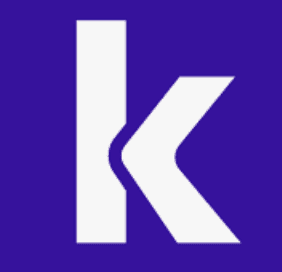ABSTRACT
Evolute Schools
Schools, as longstanding pillars of society, play a significant role in molding young minds (and our society). From age six onwards, children immerse themselves in traditional educational settings, spending a substantial portion of their formative years within these institutional walls.
Despite their established presence, many contend that schools face systemic challenges. There's a prevailing sentiment that these institutions may not adequately cater to individual needs, leaving potential undiscovered. On the other hand cooperation finds little ground to flourish. Moreover, a rigid framework, characterized by fixed locations, set hours, and standardized tests, might not reflect the dynamism and diversity of the modern world.
A proposed shift in the educational paradigm emphasizes flexibility and individualism, much like the new work narrative. This vision suggests:
- Prioritizing enjoyment in learning, akin to other child hobbies.
- Recognizing and nurturing the distinct interests and abilities of each child.
- Rethinking the traditional physical school, allowing for more dynamic learning environments.
- Broadening the definition of a teacher beyond formal qualifications to include skills, passion, and attitude.
- Encouraging peer-to-peer learning, leveraging the knowledge transfer between older and younger students.
- Modernizing curricula to address real-world complexities and challenges.
In this model, the educational setting evolves, aiming to more closely align with the diverse needs of its students and the rapidly changing world around them.
Posted on September 8 2023 by
This piece refers to the following themes
SIGNALS
On a Path of Online, Custom & Decentral
Airbnb for schools is happening in the Kindergarten space in the US yet. WonderSchool seeks to address the challenges faced by early childhood education and childcare providers in setting up, managing, and scaling their home-based childcare or preschool businesses.
Synthesis is a unique learning platform focusing on problem-solving through simulations, inspired by the challenges faced at Elon Musk's Ad Astra school (originated from teaching SpaceX’s employees kids in their office). Outschool also provides live online classes via Zoom with more of a marketplace approach.
Kubrio (prev. Galileo) like Synthesis, ZipSchool a.o,) offer personalized self-guided learning paths focussed on global challenges, emphasizing mastery and real-world applications.
Agora: a school in the Netherlands devoid of classrooms, homework, subjects, grades, and the typical hierarchical structures found in most educational institutions. Instead, children, coming from diverse backgrounds, essentially take charge of their learning journey, with teachers serving more as "coaches." The learning environment, reminiscent of an adventure playground, includes unique features such as DIY desks, an aquarium, and even half of a 1969 Cadillac. Students are free to follow their passions, whether it's delving into the intricacies of the atomic bomb or mastering the Korean language. While academic passion is evident, the most striking aspect of Agora is the sense of unity and camaraderie among students; bullying is virtually non-existent, with mutual respect and support being the norm.
Additionally terms like homeschool, cyberschool (online), worldschool (remote-friendly) shape today’s world and will potentially open up new schools.
ABSTRACT
Schools: Designs Beyond Traditional
Montessori Schools: Based on the teachings of Maria Montessori, these schools focus on self-directed activity, hands-on learning, and collaborative play.
Waldorf Schools (or Steiner Schools): Founded by Rudolf Steiner, these schools emphasize the role of imagination in learning and aim to integrate the intellectual, practical, and artistic development of students.
Reggio Emilia Schools: Originating in Italy, this approach emphasizes exploration and discovery in a supportive and enriching environment based on the interests of the children themselves.
Democratic or Free Schools: Examples include the Sudbury Valley School and Summerhill. In these schools, students have a direct say in the rules of their school and their own curriculum.
Forest Schools: Originating in Denmark, these schools focus on outdoor education in a woodland environment.
Big Picture Learning Schools: Focuses on students' individual interests and real-world learning. Each student has a learning plan tailored to their own unique interests and passions.
Escuela Nueva: Started in Colombia, this model emphasizes a flexible learner-centered approach, cooperative learning, and active participation.
Acton Academy: This U.S.-based model uses a self-paced "learner-driven" approach where students learn primarily through hands-on projects and quests.
Blue School (New York): Founded by the creators of the Blue Man Group, this school emphasizes creativity, collaboration, and inquiry-based learning.
High Tech High (San Diego): Focuses on project-based learning and integrates technical skills with traditional subjects.
FEATURES
Students have the autonomy to select courses based on their interests, preferred educators, or friends' participation. Every child who chooses a course gets a spot, eliminating "no more space" scenarios. Within courses, students are divided into subgroups of around four, ensuring personalized attention. Each subgroup has a dedicated supervisor. While students have primary areas of interest (blocks) where they can opt for more courses, they must still cover all blocks. These blocks are subdivided into specific courses.
FEATURES
The daily schedule provides structure for students. It consists of mandatory and elective subjects. Traditional classrooms are not in use; instead, the location depends on the educator's preference.
FEATURES
With a vast array of course offerings, children and their parents can collaboratively design a daily schedule, including an afternoon program tailored to their preferences. Courses can be filtered based on individual needs, including age, location, time, and duration.
FEATURES
Detailed course information, including the coach's profile, location, timing, duration, and fellow participants, is available through the app. Courses comprise mixed age groups, ensuring representation from all age stages within a given tier. This encourages learning from more experienced peers without significant age gaps. Course educators, often more coaches than traditional teachers, rotate frequently. Senior students in a tier coach the younger ones, spending a year in a coaching role before advancing to the next tier.
FEATURES
Managing the flexibility of the school day and multiple interactions across groups, one-on-one sessions, coachings, reflections, and check-ins is one aspect of the digital infrastructure. Additionally, it offers unhindered access to content and tools.
FEATURES
The primary focus is on how students interact socially. The emphasis is on whether one has learned or imparted knowledge to peers rather than merely producing high grades under pressure. Furthermore, children enjoy tracking their progress, witnessing their growth and development firsthand.
FEATURES
Moving away from the traditional notion of teaching being confined to certified teachers, this approach opens the floor for anyone with a particular skill and passion. Individuals can propose themselves and their course offerings, which are then reviewed for approval. The instructor selects a location suitable for the class, which could be anywhere that aligns with the nature of the course, be it a basketball court or a computer lab. If needed, they can also seek assistance from the school's infrastructure to find the right venue based on the course topic and requirements.






